The Renault Symbioz concept EV was conceived as a mobile home on wheels, with a multi-use cabin giving occupants a new motoring experience. It is an extended living space from the home, bringing the lounge atmosphere when on the move.
Thanks to its various self-driving modes, there’s no more need for manual driving (the option is still there though). In lounge mode, the front seats swivel 180° experience while the vast sunroof gives a very open feeling as the sky passes by overhead.
The floating glass roof features a system to adjust the opacity of the glass and the LED lighting that can be accessed from the Renault MULTI-SENSE 3.0 system interface.
And when at home, it is also possible to make the Symbioz an additional room for the house. Pushing home automation to the next level, the home power supply can charge the electric car automatically and at the same time, the car’s battery pack can supply electricity for the needs of the home. This interconnectivity allows car and home to recognize each other and anticipate their reciprocal needs.
Want to own a Symbioz? TC Euro Cars can offer you one and rhere’s no charge. The only cost to you will be some time that will be well spent experiencing one of the Renault models offered by the company. By the way, the Symbioz will be 1/64th the size of the original car.
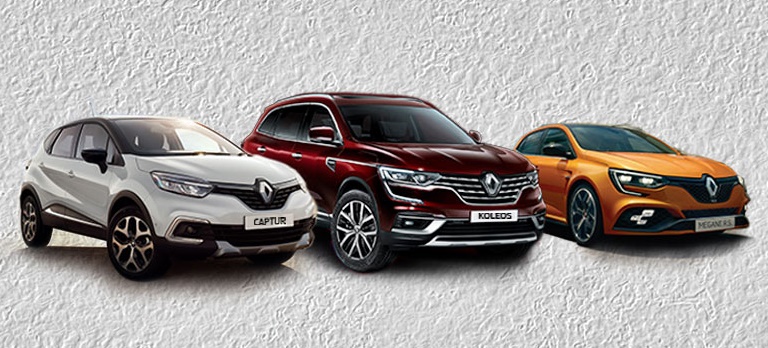
Click here to locate a showroom to experience a Renault and get your Symbioz (while stocks last).
The countdown has started for the launch of the all-new Honda City in Malaysia with bookings being accepted by 101 authorised dealerships nationwide from today. The Malaysian launch, to take place during the fourth quarter of 2020, will also be the global debut of the City RS intelligent Multi-Mode Drive (i-MMD).
Preview before launch
Before the launch, the public can get a glimpse of it at various locations in Peninsular Malaysia (click here for the list of venues). Honda Malaysia will also offer ‘early bird’ buyers with a RM1,000 Service Voucher under the All-New City Special Early Booking Programme. And although the price is not announced yet, the new car will have full 10% sales tax exemption until the end of 2020.
This will be the fifth generation of the model which began as Honda’s ‘Asian Car’ in the mid-1990s (there was an earlier City in the 1980s but it was a different concept). The new generation made its global debut in Thailand in November last year.
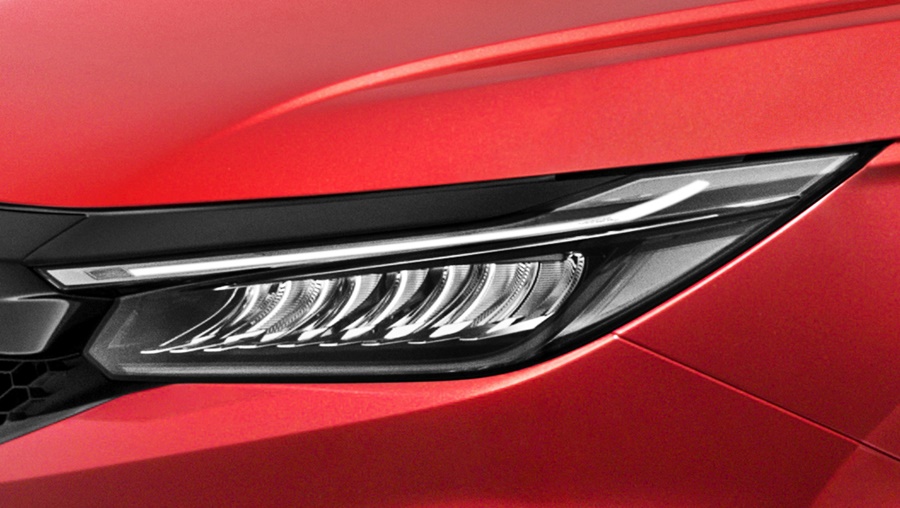
The City RS will have LED Headlights (RS and V variants) with LED Daytime Running Lights as well as new LED taillight clusters. New Black door mirrors on the RS create a two-tone expression of the body colour. There are also 16-inch aluminium alloy wheels with the RS & V variants finished in a dual tone. The circumference of the wheels gives the impression of being rim-less, making the wheels look larger and complementing the larger appearance of the car.
Honda Malaysia has revealed that there will be four variants of the new City which will be assembled at its factory in Melaka. Commenting on the model, Honda Malaysia’s Managing Director & CEO, Toichi Ishiyama, said: “The City has proven to be an important model for Honda Malaysia, a favourite among many Malaysians for its spaciousness, practicality and safety features. Since its introduction to the Malaysian market in 2001, the model has an accumulated total sales of 351,000 units with the most sought-after 4th Generation City which was launched in 2014 contributing more than 205,000 units and upholding its No.1 position in the B-segment.”
Mr. Ishiyama added that the launch of the City RS with a new powertrain in Malaysia is ahead of other countries. “We believe that this new model will excite the market with its advanced styling and engineering as Honda continues to lead the way in pioneering benchmarks and introducing Next Generation Advanced Technology that is ahead of its time,” he said.
4 variants with sporty RS as well
In the Honda line-up, RS is conceptualised as ‘Road Sailing’, where one can imagine driving far away and sailing along the road with an uncompromising driving performance. ‘RS’ is also associated with sporty and stylish appeal Honda variants and with the new City RS, Honda Malaysia expects it to be a class leader.

i-MMD powertrain
The new i-MMD powertrain, globally known as ‘e:HEV’, spearheads Honda’s Next Generation Hybrid Technology to realize outstanding environmental performance without compromising driving enjoyment. It provides high efficiency electrification combined with direct and smooth response.
The i-MMD powertrain was previously only available in Honda’s line-up of large class models. To offer the advanced technology across all other Honda models, the engineers at Honda R&D have adapted a more compact and efficient i-MMD system to a smaller-sized vehicle. the powertrain is said to deliver a best-in-class maximum torque rating of 253 Nm which is comparable to a bigger D-segment model or a 2.5-litre naturally aspirated engine.
Customers also have the option of choosing a new 1.5-litre DOHC i-VTEC powertrain which is the newest engine in its segment.
The new City will have Honda LaneWatch to monitor the blind spot on the car’s left side. However, the camera installation appears to be different from the one’s on other Honda models (below).
Honda LaneWatch comes to the City
With the new City, Honda Malaysia is going further with safety equipment and it will have a couple of B-segment firsts. One of them is Honda LaneWatch, a camera-based system which monitors the blind spot on the left side and shows the image on the dashboard display. This feature is already available in the Accord, CR-V and Civic and now comes to the City.
Replacing the traditional handbrake lever, there is a new first-in-segment Electric Parking Brake which makes handbrake operation a lot easier. Little effort is needed to lift the small tab which can be done with one finger. It also frees up more space on the centre console for other purposes.
Revised Price List for Honda Models, effective from today till December 31, 2020
In spite of the Movement Control Order (MCO) – which is still in effect as the Recovery Movement Control Order (RMCO) – reducing motoring for two months, BHPetrol’s Kaya Raya promotional contest still received half a million entries from around the country.
This was revealed by Leslie Ng, CEO of Boustead Petroleum Marketing Sdn Bhd, which distributes and markets BHPetrol fuels, lubricants and other services. The contest, which began on March 15 was on until June 20, 2020. It was open to customers at BHPetrol stations who made a purchase of RM30 of BHPetrol Infiniti fuel or purchased items from the BHPetromart convenience store.
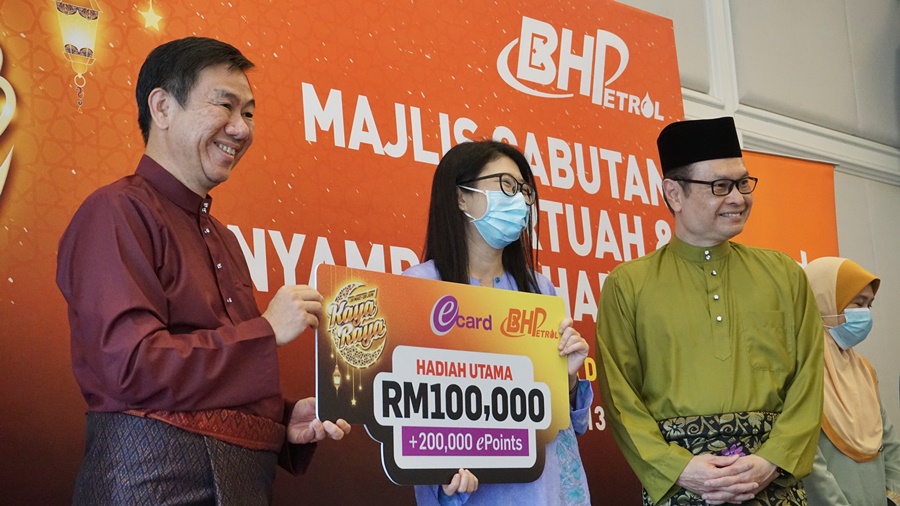
During the contest period, there were weekly prizes of 100,000 ePoints given to 10 winners each week, for a total of 140 winners. The ePoints can be redeemed for BHPetrol fuel or various products at the stations. 1 ePoint is normally given for every RM1 spent at BHPetrol service stations or partner outlets. Motorists can redeem 550 ePoints for RM5 worth of fuel or 950 ePoints for RM10 worth of fuel.
12 Malaysians, randomly chosen from those who submitted all-correct answers on the entry form, became the finalists and were invited to attend the ceremony for the final draw. Mr. Ng and his senior colleagues drew the winning names for the big cash prizes and BHPetrol eCard loyalty points.
The prizes were one Grand Prize of RM100,000 + 200,000 ePoints; two 1st Prizes of RM50,000 + 100,000 ePoints each; three 2nd prizes of RM20,000 + 40,000 ePoints each; and six 3rd prizes of RM15,000 + 30,000 ePoints each.
“I would like the congratulate all the lucky winners and express my gratitude to all customers who have participated in the contest. This is one of our ways of rewarding our valued customers who have been supportive to the brand all these years,” said Mr. Ng.
He gave assurance that the company is committed to bringing more exciting promotions while providing excellent products and services at our network of 400 service stations.
While Infiniti fuels are the most prominent products, Boustead Petroleum Marketing is also involved in the distribution of Liquified Petroleum Gas (LPG) which is branded as BHPetrogas. It is available in a range of capacities, from 12-kg and 14-kg cylinders, to 50-kg industrial cylinders for home or commercial use
Engine lubricants under the SYNGARD brand are also available in different grades and formulations to suit a wide variety of vehicles on Malaysian roads. They are developed with advanced US additive technology sourced from one of the world’s biggest specialists in additives.
To know more about BHPetrol products and services and to locate a station, visit www.bhpetrol.com.my.
Click here for other news and articles about BHPetrol
Since appearing in 2017, Kia’s German-chasing Stinger has not enjoyed a glowing report card where sales have been concerned. In fact, as the numbers slowed down, there were even rumours earlier this year that the model might be discontinued. Well, the question of a second generation is probably unanswered for now, but it is already 3 years and so it’s time for an update anyway.
Kia has released the first images of an upgraded Stinger, revealing a refreshed design for the high-performance fastback sports saloon. Changes to the appearance of the model amplify its Gran Turismo character, while improving cabin quality and giving owners more choice of colour and material.
The images show as Korean market model which may be a bit more elaborate than those exported. On the outside, the changes add a new touch of drama to the car’s design and give buyers more options for customisation. A new colour choice will also be offered in export markets.
Inside, there’s a more comfortable space in which to travel, with a revised design, new higher-quality materials, and updates to the infotainment system.
Commenting on the new Stinger, Karim Habib, Senior Vice-President and Head of Kia Global Design, said: “The Stinger projects an air of elegance and comfort, and also great purpose, for long-distance driving. The updated model builds on the svelte gran turismo design we introduced three years ago with modern flair and a subtle hint of aggression to enhance its on-road presence. The interior, too, has been enhanced, and the new design elements and technologies incorporated into the Stinger reconfirm its credentials as the consummate Grand Tourer.”
More muscular looks
At the front of the Stinger, Kia’s signature ‘tiger-nose’ grille sits between new multifaceted reflector LED headlamps, with a new design and LED daytime running lights. The new lamps appear darker and sleeker with the lights out, while giving the car a more high-tech light signature, with sharp slashes of light angled slightly towards the front of the car.
At the rear, a svelte updated rear combination lamp displays a distinctive new light signature, extending the full width of the car and mimicking the shape of the subtle spoiler integrated into the trunk lid. The new turn signals comprise a collection of 10 individual LED units each, arranged in a grid pattern to mimic the appearance of a checkered flag, used in motorsport to signal the end of a race.
Buyers of more powerful versions will have the option to specify larger wide-bore bright silver exhaust mufflers. This option will come with a more purposeful, performance-inspired rear diffuser to give the car a more muscular rear appearance.
New exterior packages
Two new exterior packages are also introduced for the first time. For high-performance variants in many markets, a new ‘Dark Package’ brings with it a gloss black diffuser surround and black wide-bore muffler tips. The Stinger emblem on the tailgate is also finished in black.
For North America only, a new ‘Black Package’ is offered, giving those who desire customisation the chance to enhance the aesthetics of the Stinger further with an aggressive new look. The Black Package includes new 19-inch matte black lightweight wheels, a new rear wing for the bootlid, and blacked-out mirror caps and side fender trim.
Higher-quality cabin
While the architecture of the 5-person cabin in the upgraded Stinger remains unchanged, there’s a range of subtle enhancements. The lower section of the steering wheel features a new metallic finish, matching the chrome bezel that now surrounds the 7-inch fully-digital instrument cluster. The latter is designed to provide crystal clear information to drivers via its high-definition display.
Depending on specification, the dashboard and doors are finished with new contrast stitching, while the centre console is available with aluminium or carbonfibre-style trim. Both measures enhance the sporty nature of the cabin.
Sitting atop the dash is Kia’s upgraded 10.25-inch touchscreen infotainment and navigation system, accented by a new glossy black finish along the front of the dash. The rearview mirror is now frameless, creating a modern look and enhancing rear visibility.
More choices
The cabin also features a new mood lighting system, allowing drivers to select one of 64 colours to subtly alter the character of the cabin. These visual and material upgrades are designed to improve the car’s Grand Touring ability, creating a more luxurious ambience.
For global markets, new upholstery choices include Nappa leather finished in Saturn Black, Red or Beige, alongside existing leather and synthetic leather options. A new Saturn Black option finishes the seats in black suede with contrasting red stitching in a ‘chain’ pattern, designed to mimic the links in a watch strap.
The powertrain line-up is not revealed at this time but is likely to have some new technologies. The new Stinger will be launched in Korea before the end of next month, with other global markets to follow later.
VR technology enhances vehicle development processes for Hyundai and Kia
The Rolls-Royce name is well known throughout the world and associated with the super luxury and exclusive cars of superlative quality. However, there is also Rolls-Royce plc which is better known among those in the aviation industry and provides, among other products, jet engines for many of today’s airliners.
Before the 1970s, there was just one Rolls-Royce company which was an engineering company started in 1884 and also made cars. In 1973, Rolls-Royce Motor Cars was established as a separate entity and progressed on its own, while the original company went through various stages of evolution.
The aeronautical roots of Rolls-Royce are not forgotten by Rolls-Royce Motor Cars and the carmaker’s Bespoke Collective has created a unique collection of just 50 Wraith Eagle VIII cars that tell the epic tale of one of the most pivotal moments of the 20th century. This was the first non-stop trans-Atlantic flight which took place in June 1919.
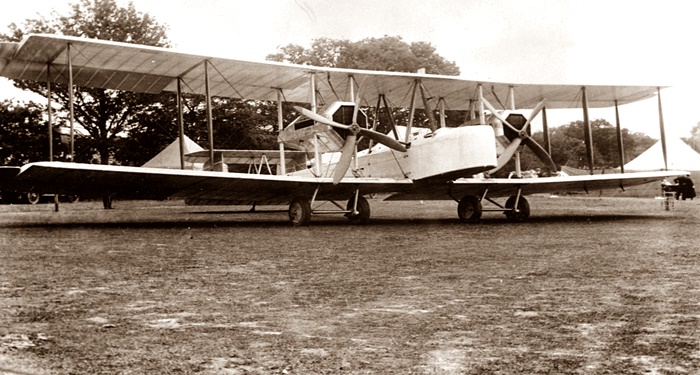
The flight was done by Captain John Alcock and Lieutenant Arthur Brown, contemporaries of Sir Henry Royce, one of the founders of Rolls-Royce. The modified World War I Vickers bomber aircraft they flew was powered by twin 20.3-litre, 350 bhp, Rolls-Royce Eagle VIII engines.
They safely crossed from St. John’s, Newfoundland to Clifden, Ireland in less than 72 hours, a feat which Rolls-Royce marked the 100th-year anniversary of this feat last year with a highly contemporary Collection that speaks to today’s adventurers, whilst honouring those who changed the course of history.
“I do not know what we should most admire – their audacity, determination, skill, science, their aeroplane, their Rolls-Royce engines – or their good fortune,” commented Sir Winston Churchill at that time when he presented the brave men with the £10,000 award by the Daily Mail.
A hundred years later, Torsten Muller-Otvos, CEO of Rolls-Royce Motor Cars, commented at the unveiling of the Wraith Eagle VIII Collection Car: “Wraith Eagle VIII is at once an object of desire; homage to heroes and a protagonist to today’s visionaries. This Rolls-Royce Collection demonstrates the extraordinary skill of our Bespoke Collective at the Home of Rolls-Royce in Goodwood, West Sussex. Bespoke remains the jewel in the crown of the marque, creating luxury items that defy the trend of mass luxury manufacturers using ‘tick-box’ options to answer customer demand.”
The car is swathed in Gunmetal with a Selby Grey upper two-tone finish, the colours separated by a brass feature line which hints at the detailing that lies within. The black grille vanes draw immediate reference to the Rolls-Royce Eagle VIII engine cowling on the Vickers aircraft, while the wheels are partially polished with a translucent shadow finish.
Within, the finely executed interior mirrors the exterior hue. Selby Grey and black leather are accented by brass, redolent of the brass sextant so integral to the success of the transatlantic journey. Executed in a contemporary fashion, the material populates key areas throughout the cockpit of the Collection.
Brass speaker covers depict the estimated flight distance of 3,027 kms and ‘RR’ monograms are embroidered in brass-coloured thread onto headrests. A flash of brass complements the navigator door paniers, whilst the door of the driver includes a brass plaque with Churchill’s quote commending the duo’s remarkable achievements.
Inspired by the night-time conditions of the flight over the ocean, the fascia represents a modern-day abstract interpretation of the view the pair would have enjoyed as finally, their craft cleared the thick fog and cloud. In a fusion of contemporary and traditional practises, Smoked Eucalyptus wood is vacuum metalized in gold before being inlaid with silver and copper, to depict the rich detail seen in view of the Earth from above.
The scene extends to the centre console providing both an emotive and immersive experience for today’s occupants – the cockpit is in perspective with the headliner. Below, the brass-stitched quilted sides of the centre tunnel provide a direct nod to the V12-engined Vickers Vimy.
The clock of a Rolls-Royce is frequently viewed as jewellery, with many patrons choosing this canvas to tell the story of their motor car in miniature. The Wraith Eagle VIII is no exception. Our intrepid pioneers recounted that their instrument panel was frozen from the high altitude and the poor conditions, referring to the only illumination coming from the green glow of the control panel lighting and the burst of flame from the starboard engine.
In homage to this, the Rolls-Royce Bespoke Collective has masterfully fabricated a clock with an iced background effect which glows a faint green at night. The red hour hand sits atop compass-inspired lines on the clock’s fascia, whilst the landing location coordinates are engraved below.
Perhaps the most alluring feature is the extraordinary unique Starlight Headliner. Created with no less than 1,183 starlight fibres, the celestial arrangement at the time of the flight in 1919 is shown. The flight path and constellations are embroidered in brass thread, whilst the exact moment the pair left the cloud to navigate by the stars is indicated by a red fibreoptic light. Clouds are embroidered and a plaque reading, ‘The celestial arrangement at the halfway point 00:17 am June 15th, 1919, 50” 07’ Latitude North – 31” Longitude West” shows the halfway point of the momentous journey.
Rolls-Royce Motor Cars Kuala Lumpur, the authorised Rolls-Royce dealer in Malaysia, has received one of these very special cars – only 50 are made available – evocative of Alcock and Brown’s compelling adventure.
“Rolls-Royce is at the forefront of Bespoke Cars here in Malaysia. Our customers are connoisseurs who want luxury that is highly unique. This car not only fêtes a very special achievement in global history, but also resonates with our own regional development at a time when aviation was catalysed by the exploits of fearless airmen who depended on the reliability and excellence of the Rolls-Royce Eagle VIII engines,” said Anas Zawawi Khalid, Director, Rolls-Royce Motor Cars Kuala Lumpur.
The Starlight Headliner – Bringing the starry sky inside a Rolls-Royce
Each year, usually around June, thousands of spectators (250,000 in 2019) ring the Circuit de la Sarthe in France to watch the classic 24 Hours of Le Mans race. This year – for the first time since the first race was held in 1923 – there won’t be the carnival atmosphere at the 88th edition of one of the best known events in the motorsport calendar.
Surge in infections force change
With the ongoing COVID-19 pandemic, permission is being given by governments to run races with strict conditions largely aimed at avoiding spread of the coronavirus. Originally, besides being postponed to September 19 and 20, the event was allowed by health officials to have spectators. However, with a recent surge in infections in France, this was changed and no spectators are allowed. Teams and media must also be at a minimum and follow stringent procedures just like Formula 1.
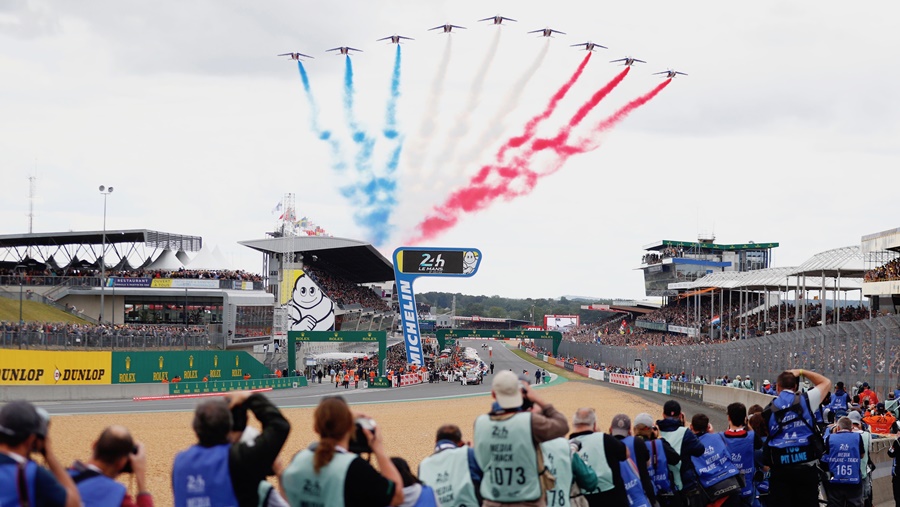
“The 88th 24 Hours of Le Mans will go down in the annals of history as, sadly, the world’s greatest endurance race run this year with no spectators trackside,” said Pierre Fillon, President of the Automobile Club de l’Ouest (ACO).
Health and safety the priority
He explained that even a limit on the number of spectators could not be considered as health and safety are the highest priority. “Given the constraints involved in organizing a festival-scale event over several days in the current situation, we have opted with the local government authorities to hold the race behind closed doors,” Fillon said.
“Fans will not miss out altogether,” he assured. “They may not be at Le Mans but our media teams and service providers will bring Le Mans to them! Thanks to the new digital platform, they will gain an exclusive insight of what goes on behind the scenes at the 24 Hours of Le Mans.”
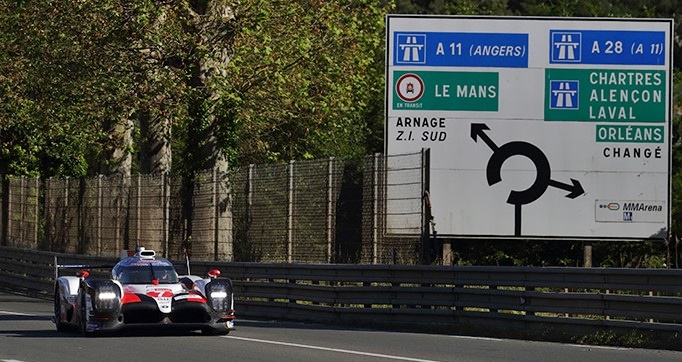
The second last round of the 2019/2020 FIA World Endurance Championship (WEC) will have 62 teams taking part. There will be 4 free practice sessions, qualifying, the Hyperpole session and a warm-up, culminating with the 24-hour endurance race on the 13.6-km course.
Last year, the starting time of the 2020 race was changed to 4 pm on Saturday, one hour later than usual. However, in replanning the whole event program this year, the race itself will start at 2:30 pm on Saturday.
7 races for this season
The championship season began with the 4 Hours of Silverstone in September 2019 and races were run in Japan, China, Bahrain, and the USA (Texas). There was also a second race to be held in the USA at Sebring but this was cancelled due to the pandemic.
Before Le Mans, there will be a 6-hour race at Spa-Francorchamps in Belgium on August 15. The final round will be the 8 Hours of Bahrain scheduled for November 21.
Looking ahead
The 2020/2021 WEC season will see the brand new Le Mans Hypercar category in place of the LMP1 category. Assuming the pandemic diminishes and countries are less restrictive, there are 8 races (ranging from 6 hours to 24 hours) scheduled to be run in Europe, Asia, Middle East, Africa and the USA. Two new venues – Monza in Italy and Kyalami in South Africa will be on the calendar.
‘R’ is a popular alphabet among car manufacturers as it is associated with the word ‘Racing’. Usually, ‘R’ is used it to designate the sportiest variants of their models. Volkswagen began using ‘R’ with the 3.2-litre Golf R32 model some 15 years ago and then decided to have a R variant for each Golf generation that would be the most powerful in its time.
The R branding became increasingly successful and by 2010, the R GmbH division was established to look after the development and marketing of the hottest VW models. And while it has been performance-oriented, the division has this year announced that its direction will follow the trend of electrification. In fact, it has maintained the reputation of high performance even in EVs with the ID. R – the fastest car ever to race up Pikes Peak in America.
Then there’s also the R-Line which draws on the R image but without performance enhancements. The R-Line began as a trim level created by Volkswagen Individual but eventually became a range of its own, managed by the R division.
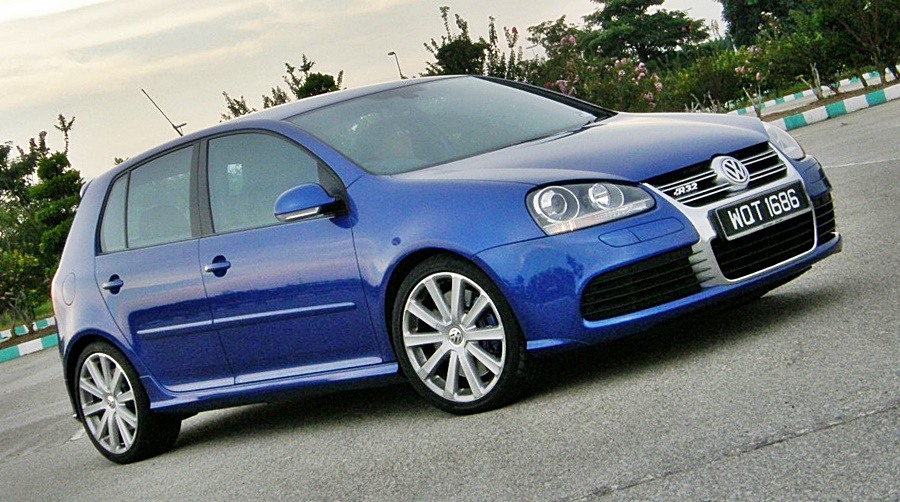

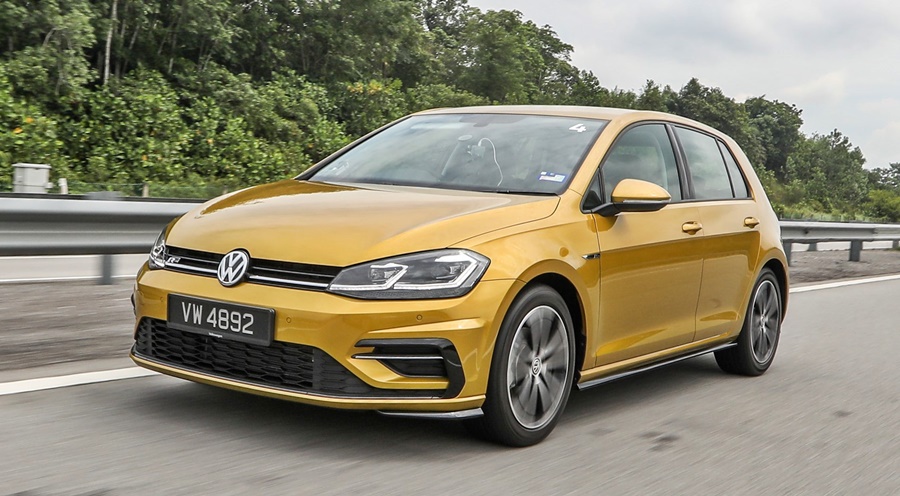
The first R-Line model in Malaysia was a version of the Passat CC introduced in 2012, followed by Golf Mk.7 a year later. Thus far, the Malaysian market has only had the R-Line available with the Golf but today, additional models have been launched to expand the R-Line to four models. Besides the Golf 7.5, which debuted in the early part of 2018, there is now the new Arteon R-Line, Tiguan R-Line and Passat R-Line.
Arteon R-Line (RM221,065)
The Arteon R-Line is the new flagship of the Volkswagen range in Malaysia. Volkswagen Passenger Cars Malaysia (VPCM) obviously expects it to make a strong impression on the market and has invested in local assembly which is done at the plant in Pekan, Pahang.
“As our new flagship, the Arteon elevates the Volkswagen brand for us as it beautifully captures design, performance and function while offering a greater feeling of exclusivity. Having it as an R-Line model adds sportiness even more to the heart of the Arteon,” said VPCM’s Managing Director, Erik Winter.
The Arteon is the direct successor to the Passat CC and has the same sleekness with a fastback profile. It sits on the MQB platform (which made it easier to assemble locally) and comes with a 2-litre TSI turbocharged 4-cylinder petrol engine with an output of 190 ps/320 Nm.
Power delivery to the front wheels is through a new and improved 7-speed double wet clutch direct shift gearbox (DSG). Drivers can customize performance characteristics with five driving modes – Eco, Comfort, Normal, Sport and Individual – as well as Dynamic Chassis Control (DCC) which offers up to 15 selectable increments.
As a flagship model, the Arteon R-Line obviously comes with a wide range of luxury items, along with the sporty image. Front passengers can sit comfortably on the 14-way ErgoComfort seats and the driver gets an additional massage function.
For audiophiles, the Arteon is fitted with a 700W Dynaudio sound system that comprises 11 speakers plus a subwoofer, and 16-channel digital amplifier. Adding to the luxurious ambience are Silver Rise aluminium inserts, Titanium Black headliner, an analogue clock and 3-colour ambient lighting.
The 11.7-inch Digital Cockpit keeps drivers well informed with data displayed on customizable screen views (up to 6) and over 30 combination options, including 2D and 3D navigation and a full 100% map view.
For connectivity, the 9.2-inch Discover Pro touchscreen (split view) infotainment system allows drivers to connect wirelessly via Apple CarPlay, with Android Auto and Mirrorlink also available via a Type C USB port. The system has voice control and gesture control for handsfree operation.
A first for Volkswagen in Malaysia is the car’s Easy Close feature which provides a 20-second delayed closing of the boot, giving the driver freedom to remove items in the boot using both hands. Handsfree opening can be easily done by just placing a foot under the rear bumper.
Tiguan Allspace R-Line (RM209,575)
The new Allspace variant signifies the longer wheelbase that makes possible the addition of a third row of seating, so up to 7 persons can be accommodated. While the Tiguan Allspace Highline comes with front-wheel drive and a 1.4-litre TSI engine, the R-Line version has Volkswagen’s 4Motion all-wheel drive system and 19-inch alloy wheels.
Upholding its R-Line legacy, the Tiguan Allspace R-Line has the highest power and torque in its class – 220 ps/350 Nm – generated by a 2-litre TSI turbocharged 4-cylinder petrol engine. Like the Arteon R-Line, it also has a 7-speed DSG. Besides the 4Motion’s four modes for different conditions, the driver can also customize the powertrain characteristics as well as the chassis to suit personal driving styles and even to stretch each litre of fuel.
With three rows of seats, there’s the possibility of multiple seat configurations to suit different needs. The second and third row backrests can be folded individually and when both rows are flat, there’s a massive boot volume of 1,775 litres.
The interior is a combination of sportiness and functionality with connectivity features such as a Digital Cockpit and 9.2-inch Discover Pro infotainment system with 8 speakers. Standard features include 3-zone climate control, cruise control, powered tailgate, LED lighting units front and rear and a tyre pressure monitor.
Passat R-Line (estimated RM200,000 – RM210,000)
The new Passat R-Line is not available just yet, but Volkswagen dealers will accept bookings from today. Like the Passat Elegance launched earlier this year, the Passat R-Line is also locally assembled. Being assembled locally, like the Arteon and Tiguan, means there is full exemption of the 10% sales tax until the end of the year.
The accessories developed by the R division for the Passat are sportier front and rear bumpers, side R-Line badge and a lot of chrome trim, plus 19-inch Verona alloy wheels. As for the interior, R-Line trim is in the form of Nappa carbon-style black leather seats, steering wheel and aluminium sports pedals.
For connectivity, the Passat R-Line has Volkswagen’s Discover Pro infotainment system with a 9.2-inch touchscreen. Convenient features include voice control, gesture control, a customizable 3-view split screen and Wireless App-Connect with Apple Car Play.
The Passat R-Line is not just about sportier looks but also delivers strong performance with its 2-litre TSI turbocharged 4-cylinder petrol engine (190 ps/320Nm) paired with the new and improved 7-speed wet clutch DSG.
The other models in the 2020 range
The Volkswagen range for Malaysia this year presently consists of the Arteon, Passat, Tiguan, Golf 7.5, Vento and Polo, with their respective variants. Prices range from RM221,065 to RM74,800 so there should be a Volkswagen to suit your budget.
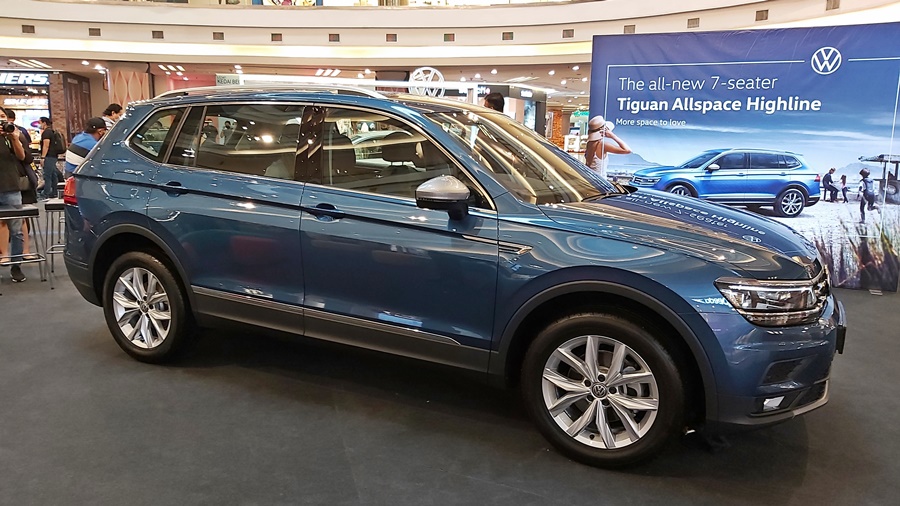
As part of its ‘Volkswagen Cares’ initiative, every new unit comes with 3 years of free scheduled maintenance, a 5-year warranty with no limit on mileage and 5 years complimentary roadside assistance.
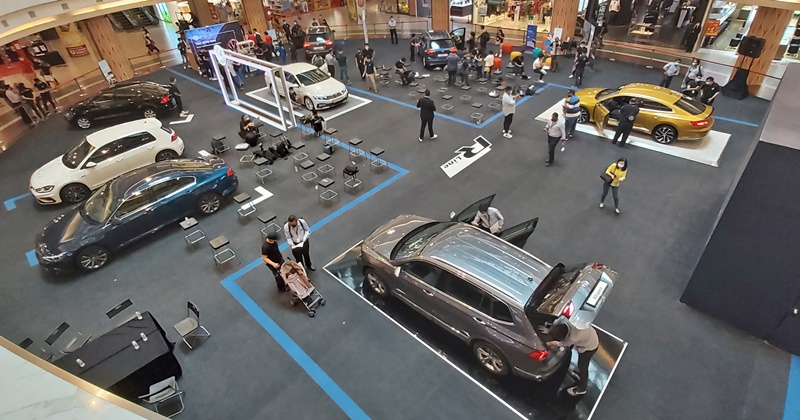
Although this year has seen virtual racing or digital motorsports take a big leap in popularity due to the lockdowns that prevented real-world racing to take place, the Toyota GR Velocity Esports Championship has actually been running earlier. In fact, two seasons have been run and next month will see the third season.
Racing events throughout September
The 2020 championship will start off with a series of qualifying rounds, followed by a semi-final and finally, a 4-race format Grand Final. There will be 4 online qualifying rounds (limited to 180 participants per round) which will be run over two consecutive weekends from September 3 and 4 and September 12 and 13.
The virtual track for qualifying will be the 4.5-km Fuji International Speedway in Japan with racers using a GR Supra RZ. UMW Toyota Motor (UMWT), the organisers, expect up to 720 participants this year.
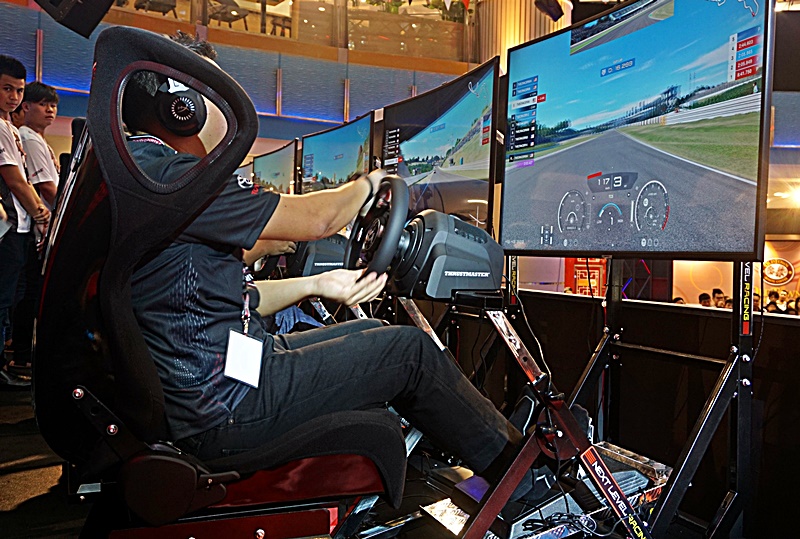
The top 20 fastest drivers will then advance to the semi-final to be held on September 26. This will be held at UMWT’s headquarters complex in Shah Alam, Selangor. The semi-final will involve two individual races held in Japan. The first is a 22-lap race at the Kyoto Driving Park behind the wheel of a TS050 Hybrid prototype sportscar and later, a Dallara Super Formula SF19 around the 5.8-km Suzuka Circuit in an 18-lap battle.
The 10 fastest drivers will enter the final challenge Grand Final on September 27 at the same venue. Besides the Grand Prize of RM20,000, there are cash prizes of RM10,000, RM7,000, RM5,500, RM4,500 for the other 4 overall winners. Cash prizes of between RM4,000 and RM2,000 also await those who finish in 6th to 10th positions. RM500 each will also be given out to those who finish in 11th to 20th positions.
The most lucrative online racing series
Racers will also stand a chance to win additional cash prizes in the form of RM450, RM200 and RM100 awarded to the first, second and third place winners at each of the 4 Grand Final races. This makes the Toyota GR Velocity Esports Championship one of the most lucrative and rewarding online racing series locally.
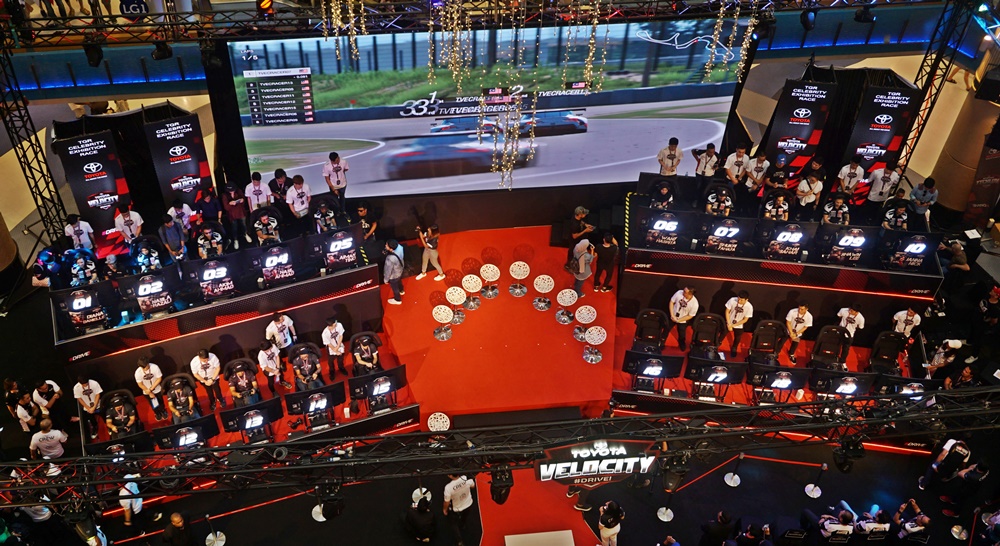
The Grand Final will have 4 gruelling races with points awarded for every round. Race 1 will see drivers competing in a GR Supra RZ at the Autodrome Lago Maggiore circuit in Italy (15 laps). Race 2 will be at the Autopolis Racing Course Japan in a FT-1 Vision Gran Turismo (18 laps). Race 3 will put the driver behind the wheel of a TS050 Hybrid sportscar at Circuit de la Sarthe in France (10 laps). The fourth and final race will take place at the 13.6-km Belgium Spa- Francorchamps circuit with a Toyota-powered Dallara Super Formula SF19 (18 laps).
Season 3 of the Toyota GR Velocity Esports Championship will also feature a special 10-lap exhibition race involving racers and celebrities who competed in the Toyota Vios Challenge and Toyota GAZOO Racing Festival. The racing drivers will go participate in a 10-lap race behind the wheel of a GR Supra Racing Concept racing car at the 4.5-km Fuji International Speedway while celebrities will drive a TS050 Hybrid sportscar in a 17-lap race at the Tokyo Expressway.
First ever regional championship
The top three racers will also earn the honour of representing Malaysia in the first ever GR Supra GT Cup Asia 2020 regional e-motorsports competition organized by Toyota Motor Asia Pacific in October 2020. The GR Supra GT Cup Asia 2020 will see competitors from Malaysia competing against the best from Thailand, Singapore, the Philippines and India.
“The race must go on, amidst a post-pandemic era and in the new norm. While physical motor racing involving Toyota is not expected to return until the first quarter of 2021, the past 5 months presented UMWT with the perfect opportunity to advance our virtual racing activities and to bring the GAZOO racing spirit and motorsports to the masses,” said Toyota GAZOO Racing Malaysia’s Chief Motorsports Officer, Akio Takeyama.
Interest keeps growing in Malaysia
UMWT is the first and still the only Malaysian car company to be associated with the fast-growing e-sports activities, contributing to the growing interest in online simulator racing in the country. According to Ravindran K., President of UMWT, the number of participants who competed in the Toyota GR Velocity Esports Championship grew to 657 in 2019 from 400 when the series was first introduced in 2018.
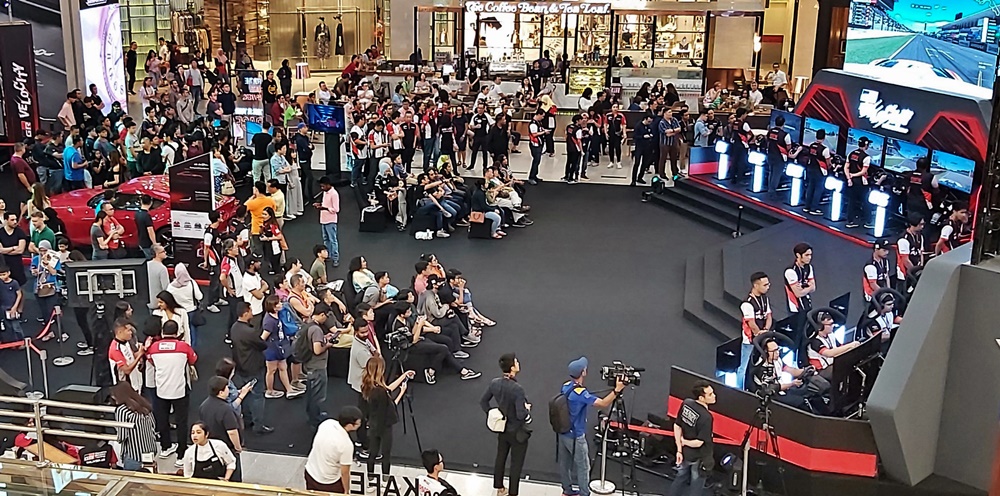
Incidentally, 2018 was also the year when the FIA (the world motorsport governing body) recognised simulator racing and certified it as Digital Motor Sport.
“Online racing, particularly the growing interest in Simulator Racing, has exponentially grown, more evidently over the last 5 months, and it has successfully attracted both real-world racers and virtual racers,” Mr. Ravindran said, adding that some 300,000 viewers are expected to tune in to the Toyota GR Velocity Esports Championship live streamed online races this year.
For more information on the Toyota GR Velocity Esports Championship and to register to compete, visit www.toyota.com.my.
The first Rolls-Royce Ghost reflected a layer of clients who use their Rolls-Royce in a completely unique way. These men and women required a motorcar able to offer an impeccable chauffeur-driven experience as well as a vibrant dynamic personality when they chose to drive it themselves.
In 2009, when the first Ghosts entered the market, this collective of business leaders, founders and entrepreneurs were unanimous in their feedback that the marque had created a product that balanced their requests perfectly.
When these clients were informed that Rolls-Royce would begin developing the second generation of the Ghost – expected to be unveiled before the end of this year – their request was simple: deliver a motorcar that they could use even more. They desired something even more refined to be driven in and even more enjoyable to drive.
Meeting the challenging brief
To fulfil this challenging brief, the engineering experts at the 114-year old company rejected the use of a pre-existing platform. Instead, they have configured the marque’s proprietary ‘Architecture of Luxury’ aluminium spaceframe chassis to incorporate elements of the brand’s existing model portfolio such as all-wheel drive and all-wheel steering.
At the same time, the structure has been adapted to accommodate significant advances in Rolls-Royce’s hallmark magic carpet ride and dynamic abilities. Naturally, these qualities are expected especially by those who have owned a Rolls-Royce.
“Ghost clients told us that it’s the car in their collection that they’re drawn to the most. They love its uncomplicated versatility. It’s not trying to be a sportscar, it’s not trying to be a grand statement – it’s simply exceptional and exceptionally simple,” said Jonathan Simms, New Ghost Engineering Lead.
The Planar system
A key development was the Planar system, which is consists of three elements. The system allows new Ghost to anticipate and react to even the most demanding road surface.
The first is an Upper Wishbone Damper unit which is mounted above the front suspension assembly and creates an even more stable and effortless ride. The result of three years of development, this is a world-first technology.
The second is the Flagbearer system, a predictive system which uses cameras to read the road ahead and prepare the suspension system for any changes in road surface. The third is Satellite Aided Transmission, which draws GPS data to pre-select the optimum gear for upcoming corners.
Pushing the architecture further
During the engineering design process, chassis and suspension specialists were tasked with regularly presenting the technical advances they had made to other departments, as well as showcasing how these remarkable developments met the client brief.
“When it came to creating a new Ghost – one that outshines its incredibly capable predecessor – the engineering team had to start from scratch. We pushed our architecture even further and created a car even more dynamic, even more luxurious and, most of all, even more effortlessly useable,” Simms promises.
© Copyright – Piston.my 2024 Trademarks belong to their respective owners. All rights reserved